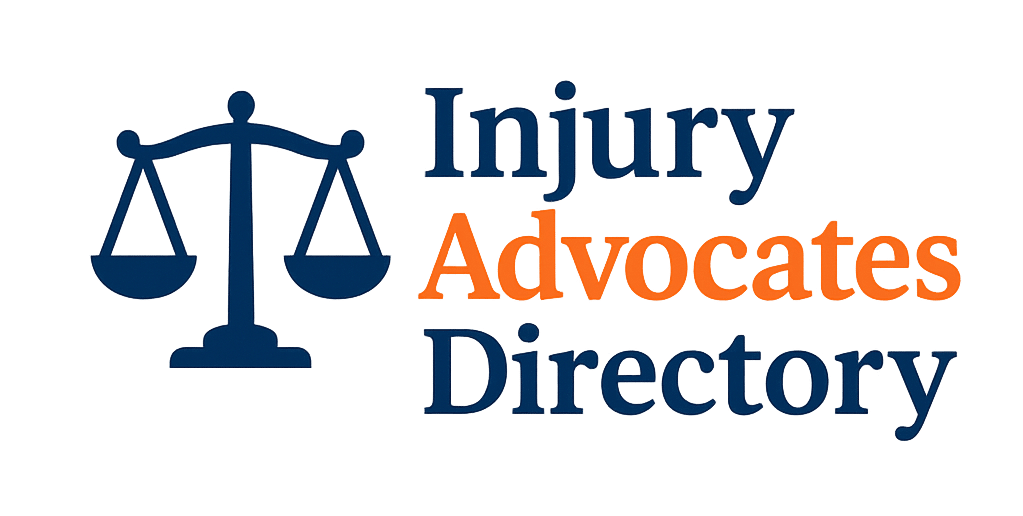Witness credibility is a critical factor in the success of personal injury claims. Credible witnesses can turn a weak case into a strong one, providing vital support to the claims made by injured parties. Their ability to deliver clear and consistent testimony is essential for establishing fault and validating damages in front of juries and insurance companies.
Understanding the dynamics of witness credibility can significantly impact the outcome of legal proceedings.
What makes a credible witness for a personal injury claim?
A credible witness possesses several key attributes that enhance their reliability in court. First and foremost, a witness should be unbiased and impartial, meaning they have no stake in the outcome of the case. This impartiality often lends credibility to their testimony.
Moreover, a credible witness presents a clear and articulate account of the events they observed. This clarity helps juries and judges understand the context of the incident, which is crucial in personal injury claims.
Additionally, the background and experience of a witness can further bolster their credibility. For instance, a medical professional testifying about injuries sustained in an accident is often viewed with greater weight than a layperson's account.
- Unbiased testimony: The witness should have no personal interests in the outcome.
- Clear communication: Articulate and well-structured statements facilitate understanding.
- Relevant experience: Expertise related to the incident can enhance a witness’s credibility.
Finally, a witness's demeanor in court, including their confidence and honesty, plays a significant role in how their testimony is perceived. A calm and composed witness is more likely to be seen as credible than someone who appears anxious or uncertain.
Why is witness testimony crucial for injury claims?
Witness testimony serves as a cornerstone in personal injury claims, providing foundational support for the injured party's allegations. The importance of witness testimony in personal injury claims cannot be overstated, as it often helps to establish liability and the extent of damages.
Witnesses can offer unique perspectives on the incident, shedding light on circumstances that may not be captured by physical evidence. Their accounts may provide context regarding the actions of the parties involved before, during, and after the incident.
Additionally, credible witness testimony can influence the jury’s perception significantly. Juries tend to trust the accounts of impartial witnesses, which can sway their decisions.
Moreover, witness statements can help corroborate the injured party's claims. For example, a bystander who saw the accident can confirm details that the victim remembers, enhancing the overall strength of the case.
How do credible witnesses strengthen your case?
Credible witnesses bolster a personal injury case by adding layers of validation to the claims made. Their reliable accounts can shift the burden of proof in favor of the plaintiff, making it easier to demonstrate negligence.
One way credible witnesses strengthen a case is by establishing a clear sequence of events. This chronological clarity can help juries follow the narrative and understand the context of the incident.
- Establishes context: Witnesses provide background information that may be crucial for understanding the case.
- Corroborates claims: Their accounts can support the injured party's testimony.
- Influences jury perception: Credible witnesses can sway jury opinions toward the plaintiff.
Furthermore, credible witnesses can also assist in quantifying damages. For instance, a witness who observed an injured party’s inability to perform certain tasks post-accident can help illustrate the impact of injuries on the victim's life.
In summary, the more credible the witness, the stronger the case is likely to become, thereby enhancing the potential for a favorable outcome.
What are common challenges with witness credibility?
Despite the advantages of having credible witnesses, there are challenges that can arise regarding witness credibility. One significant issue is the potential for contradictory statements. If witnesses provide conflicting testimonies, it can undermine the overall case.
Moreover, biases or pre-existing relationships can affect how a jury perceives a witness. If a witness knows the injured party personally, their testimony may be viewed with skepticism, regardless of its accuracy.
Another challenge is the inability of certain witnesses to recall specific details. This can create gaps in the narrative that juries may find troubling, leading to doubts regarding the witness's reliability.
How can lawyers maximize the impact of witness testimony?
Lawyers play a crucial role in ensuring that witness testimony is both effective and impactful. One of the first steps is to identify and interview potential witnesses early in the process. Early identification allows lawyers to assess the credibility of witnesses and prepare them adequately.
Additionally, lawyers should provide comprehensive preparation for witnesses, ensuring they understand the court process and what to expect during testimony. This preparation can include coaching on how to answer questions clearly and confidently.
- Early identification: Spotting potential witnesses early can help in building a strong case.
- Thorough preparation: Ensuring witnesses know what to expect boosts their confidence.
- Coaching on clear communication: This can significantly enhance the impact of their testimony.
Furthermore, lawyers should encourage witnesses to remain calm and composed during their testimony. Techniques for managing anxiety can be beneficial in helping witnesses maintain their credibility in court.
What steps should be taken to prepare witnesses for court?
Preparing witnesses for court is essential to ensure their testimony is effective. The first step involves conducting a thorough interview to understand their perspective and recollection of events. This interview can also help identify any potential weaknesses in their account.
Once the interview is complete, educating witnesses about the legal process can alleviate some of their anxieties. Providing information about courtroom procedures, potential questions, and how to handle cross-examination will better prepare them for what lies ahead.
Additionally, conducting mock examinations can be beneficial. This practice allows witnesses to familiarize themselves with the types of questions they might encounter and the dynamics of courtroom interaction.
Finally, reinforcing the importance of honesty and clarity in their testimony is essential. Witnesses should understand that their credibility hinges on their ability to convey truthful and straightforward accounts of what they observed.
How do witnesses contribute to establishing fault in injury claims?
Witnesses play a pivotal role in establishing fault in personal injury claims. Their observations can directly contradict the claims made by the opposing party, which can significantly influence the outcome of the case.
Witness testimony can provide essential context about how an accident occurred. This context helps juries understand the actions of each party involved and assess liability accurately. A credible eyewitness can often clarify whether a party acted negligently.
Moreover, witness accounts can help illustrate the sequence of events leading to the incident. This chronological detailing can be crucial in determining fault, especially in complex cases where multiple factors are at play.
In many instances, juries rely heavily on the testimonies of eyewitnesses when making determinations about fault. The more credible the witness, the more weight their testimony carries in the eyes of the jury.
Related questions about witness credibility and injury claims
What issues affect a person's credibility as a witness?
Several factors can affect a person's credibility as a witness. One primary concern is the potential for bias; witnesses who have a personal connection to the case may not be seen as impartial. Additionally, inconsistencies in their statements or behaviors can raise doubts about their reliability.
Witnesses with a history of dishonesty or legal troubles can also face skepticism. Their past behaviors can lead juries to question their integrity, regardless of the facts of the case.
Does the judge decide if the witness is credible?
While judges play a significant role in determining the admissibility of witness testimony, they do not ultimately decide a witness's credibility. Instead, it is the jury's responsibility to assess the reliability of the testimony based on the witness's demeanor, consistency, and background.
Judges may exclude testimony from a witness deemed unqualified or overly biased, but the evaluation of credibility is primarily left to the jury during deliberations.
Why is it important for lawyers to have credible witnesses?
Having credible witnesses is crucial for lawyers because their testimony can directly influence the jury's perception of the case. Credible witnesses can provide validation for the claims of the injured party, helping to establish liability and damages effectively.
Moreover, credible witnesses can enhance the overall strength of the case, making it more difficult for the opposing party to counter the plaintiff's allegations. In essence, credible witnesses can be the difference between winning and losing a personal injury claim.
What three things do people consider when determining if a witness is credible?
When evaluating a witness's credibility, jurors typically consider three critical factors:
1. Consistency of statements: A witness who provides consistent accounts over time is often viewed as more credible.
2. Experience and background: Relevant expertise or experience can lend weight to a witness's testimony.
3. Demeanor: A witness's confidence and honesty during testimony can significantly influence jurors’ perceptions.
In conclusion, understanding how witness credibility affects injury claims is essential for all parties involved, particularly for those seeking justice after an accident. The ability of a witness to convey clear, unbiased, and consistent information can ultimately shape the outcome of a case.

